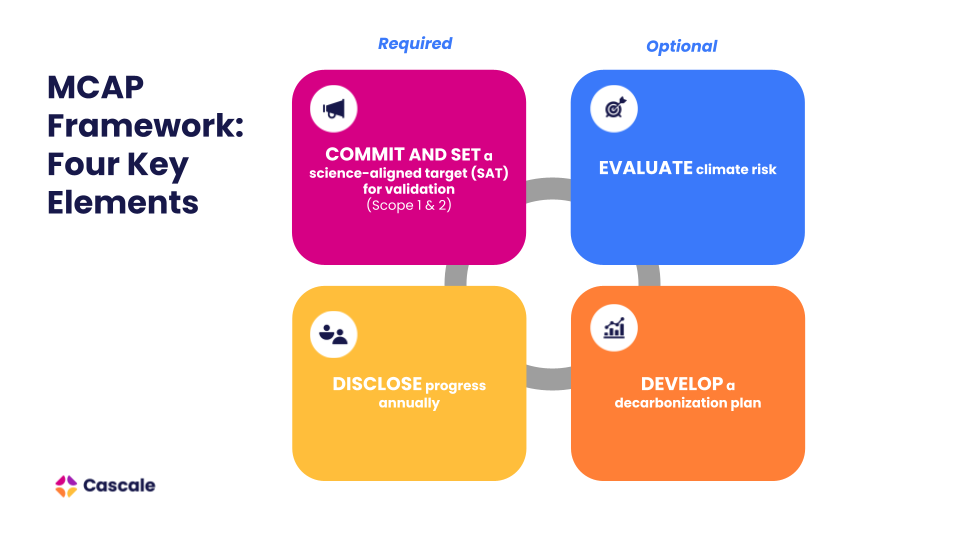
Commit to Science-Aligned Targets for Validation (Scope 1 and 2)
This is a fundamental step to demonstrate long-term commitment.
Manufacturer Climate Action Program
Welcoming Cascale members and non-members alike, the Manufacturer Climate Action Program (MCAP) helps manufacturers develop and validate Science-Aligned Targets (SATs) to reduce greenhouse gas emissions across the consumer goods industry and achieve a 45% GHG emissions reduction by 2030.
Cascale is committed to meeting stakeholders where they are in their sustainability journeys, recognizing synergies across sectors and regions as opportunities to drive impact at scale.

What is MCAP?
Within this 18-month program, MCAP provides textile, apparel, and footwear manufacturers with a comprehensive suite of support to accelerate their climate action. Included in the program fee, participants will:

What are SATs?
SATs refers to greenhouse gas emissions that occur in Scopes 1 and 2. However, MCAP also encourages manufacturers to identify and set their science-based targets (SBTs) for all three scopes.

Background: Evolution from SCAP to MCAP
Launched in 2024, MCAP evolved from the Supplier Climate Action Program (SCAP), developed by NIKE, Inc. and the World Resource Institute (WRI) in 2021, and extensive dialogue with Cascale members. Cascale also collaborates closely with the Apparel Impact Institute (Aii) and the facility-level approach presented by its Carbon Leadership Program (CLP) to accelerate decarbonization efforts.

Four Elements of MCAP
This is a fundamental step to demonstrate long-term commitment.
By assessing climate risks and identifying high emission sites, manufacturers can better engage value chain partners, including brands.
An emission-reduction roadmap addresses the growing demand for transparency and enables manufacturers to more effectively allocate resources.
Utilize the MCAP Disclosure Dashboard to champion transparency by publicly sharing annual progress reports, cultivating a culture of accountability and growth.
Join MCAP: Act Today
Play your role in shaping a brighter future to tackle climate change. We are inviting Cascale members and non-Cascale members alike to express their interest in participating in this program and make a positive contribution to the environment and climate action.

MCAP Disclosure Dashboard
This dashboard highlights the latest update of engaged manufacturers with MCAP validation, approval status of science-aligned targets (SATs) of Scopes 1 and 2 emissions reduction, climate risk evaluation, corporate decarbonization, and their annual progress updates. The intent of this dashboard is to spotlight manufacturer decarbonization progress and motivate climate action for the industry.
Disclaimer: The dashboard published here is limited and shared for informational purposes only.
Key:
MCAP Communication and Disclosure Guidelines
This guidance has been developed for participants in the Manufacturer Climate Action Program (MCAP) to advise them on how they might disclose, publicly communicate, and share information about their science-aligned targets (SATs) and participation in MCAP.

Questions?
Get in Touch → email us at MCAP@Cascale.org